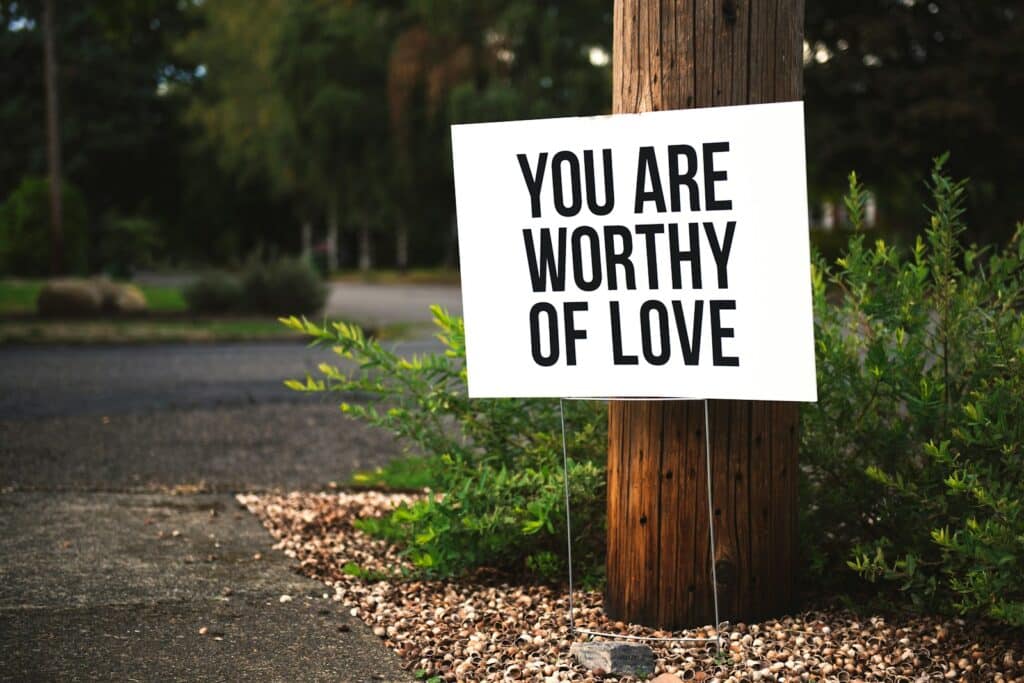“I’d never say to a friend, what I say to myself” was the insightful reflection from a delegate attending a wellbeing workshop I was running some years ago. Her observation made us stop. And think. Because she was absolutely right in what she’d said.
As part of our February series highlighting ‘International Boost Your Self-Esteem Month’, personal development specialist and author, Karen Warren explores the importance of challenging our inner critic and celebrating our achievements to help us foster resilience and self-worth.
However we define it, our internal dialogue, inner critic or negative self-talk can be a harsh judge which affects our self-esteem, confidence, and self-worth. So why do we listen to it?
Our inner critic develops in our formative years and is very sensitive to the words and influences of the people around us. Negative experiences and responses in earlier life can become welded into our psyche and repeatedly make us question ourselves and our abilities.
We all have an inner critic, but you can turn the volume down on yours to help you stay well, and develop an inner confidence and strength which recognises that you have great qualities, skills, and experience to offer the world. A confidence which helps you to navigate your way through life effectively, deal with life’s challenges and feel proud of your achievements.
Whose voice, is it?
As you consider the negative, critical dialogue that at times might disable you, think about whose voice that is. Is it your voice that drives you to do better and achieve more, or to say that your work’s never good enough? Or is it someone else’s voice?
Is it your parent, grandparent, sibling, teacher, or someone else who had a significant impact on your earlier life? While physical distance and time can help you to disconnect from negative experiences, you might be surprised at how much those messages can continue to undermine your confidence and progress in later years.
It’s great to have high standards but don’t let them disable you
By identifying the source of your negative self-talk, or the life events which have caused you to doubt yourself and your abilities, you can start to process the emotions associated with those events and challenge their validity. It’s not easy; revisiting and stirring up negative emotions can be very unsettling but by working through that process and being kind to yourself, you can disconnect from the negative voices and emotions of the past and turn down the volume of your inner critic. You can challenge the negative dialogue, to recognise and celebrate all the great things that you’re doing.
You can challenge the negative dialogue, to recognise and celebrate all the great things that you’re doing.
As it takes time to reverse the impact of the negative messages you’ve given yourself or have been given by others, you’ll need to start small. When you arrive at work or for an appointment on time, for example, you can say “Well done, I got here safely and on time”. You might find there’s a kick from your inner critic at that point to say “That’s not a big deal is it, you’ve been coming here for ages!!”. You can then challenge that negative voice with responses such as:
- “Shush, that’s not helpful! I’m taking the time the recognise and celebrate the things I’m doing well, thank you”.
- “Is that a kind response? No! I’m turning the volume down on you, my inner critic, to celebrate and feel proud of my achievements”.
It can feel a bit strange to start with but by having a more conscious conversation with your inner critic, you can challenge its validity (is that helpful?) and purpose (are you being kind?). If the negative feedback is neither valid nor purposeful (which it usually isn’t), you can reject it to give yourself the time and space to recognise the good stuff – the kind things that you do, the helpful things, the thoughtful and considerate things. The ways in which you help and support your loved ones, people you care about, people you work with. The people who will say that you make a difference in their life.
Repeat, repeat, repeat to challenge the negatives and reinforce the positives
Start small and focus on what you’re doing well each day. Do not kick yourself, metaphorically, for the things that don’t get done. There’ll always be way too much on the to-do list, so give yourself a pat on the back for getting some of it done, or for achieving lots of other things that weren’t on the list, when your day got hi-jacked and the list got thrown on the floor. We all have those days. You are human, and brilliant, obviously, so let yourself be human. Recognise that life can be hard, and you do really well to navigate its challenges effectively.
By actively challenging your inner critic, you can turn the volume down on the negative feedback and the emotions it creates. You can help it recognise that you are good at what you do, in all aspects of life. That you overcome challenges, use your skills and experience wisely, are thoughtful, kind, and considerate, and make a difference in other peoples’ lives.
Never underestimate the small stuff, in what you do for others and your own wellbeing. The small stuff matters. You matter. And you can make friends with your inner critic to build your confidence and self-esteem, feel proud of who you are and what you do, and smile at all your achievements, big and small.


